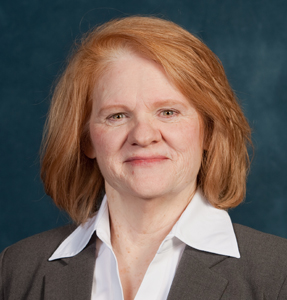Mary Lou Dorf Wins Best Paper Award at ASEE
The paper addresses the question of whether introducing an interactive textbook into introductory STEM courses can improve student grades.

 Enlarge
Enlarge
Dr. Mary Lou Dorf and her collaborators have received the Best Paper Award at the 122nd American Society for Engineering Education Annual Conference and Exhibition (ASEE), which took place in Seattle, WA from June 14-17, 2015.
The paper, entitled, “Student Performance Improvement using Interactive Textbooks: A Three-University Cross-Semester Analysis,” was co-authored with colleagues from University of Arizona, University of California, Davis, and University of California, Riverside. It addresses the question of whether introducing an interactive textbook into introductory STEM (science, technology, engineering, math) courses can improve student grades. Under this project, “interactive textbook” refers to material involving less text, and instead having extensive learning-focused question sets, animations of key concepts, and interactive tools. Such an interactive textbook typically is written from scratch for the web, but could include a previously static textbook that is thoroughly redone for the web.
The researchers’ studies included four introductory computer-programming courses at three research universities: C++ at Univ. of Michigan, C/C++ at Univ. of Arizona, and MATLAB at Univ. of California at Davis. For each, two course offerings were compared, the first using a static textbook or static web resources, and the second using an interactive textbook. Most other course features remained the same between offerings, including the teacher and the semester offering (e.g., Spring semester), or were very similar.
A combined analysis of 1,945 students in the four introductory programming courses at the three universities showed that replacing static textbooks (or static online materials) with an interactive textbook, with most other course features remaining the same, resulted in substantial improvements in exam scores, project scores, and overall letter grade, with extremely strong statistical significance. The individual cases studies showed many cases of dramatic improvements, especially for the lowest-quartile of a class, such as a nearly full letter-grade improvement for one class.
The research project was supported by a grant from the National Science Foundation.
Dr. Dorf received her Ph.D. in systems engineering from the University of Toledo in 1990. She joined the faculty at the University of Michigan as a Lecturer on 2002. She has received multiple awards for her innovations in teaching and excellence in service. Her research interests include women in computer science and engineering education. She is currently working on a number of projects aimed at increasing the number of undergraduate women who declare computer science as a major.
 MENU
MENU 
